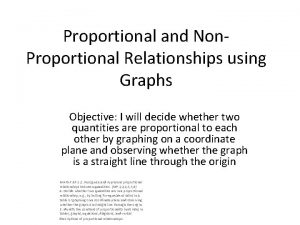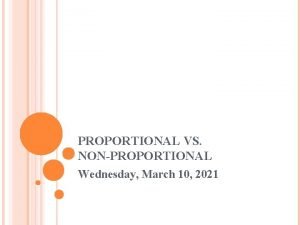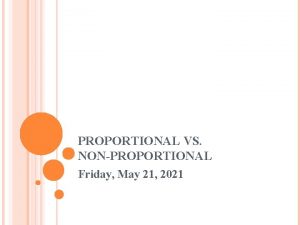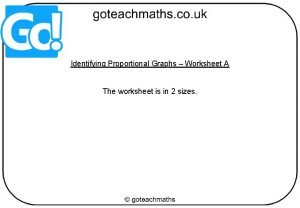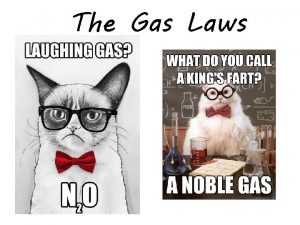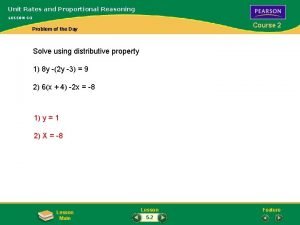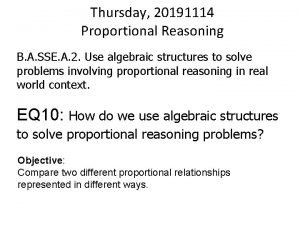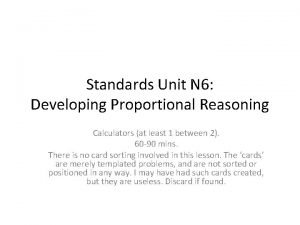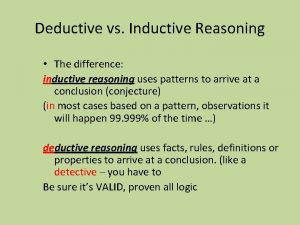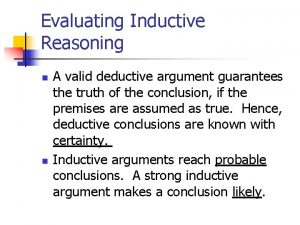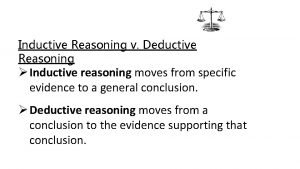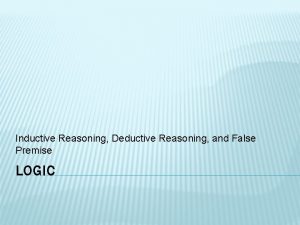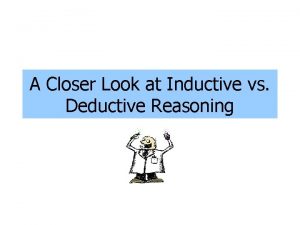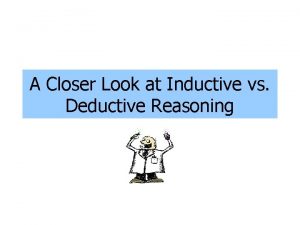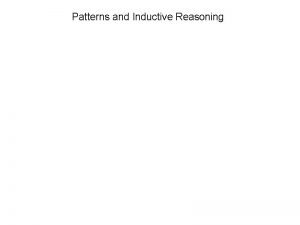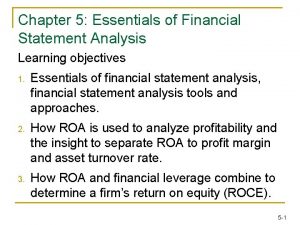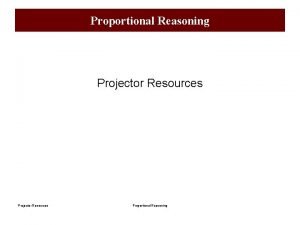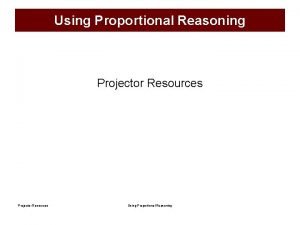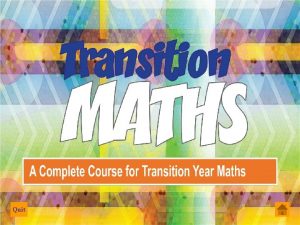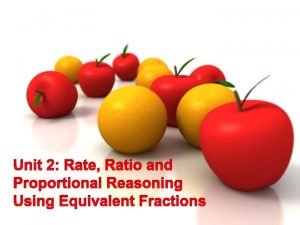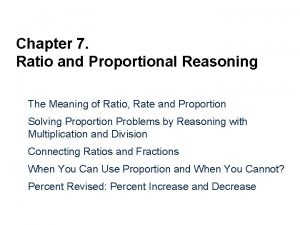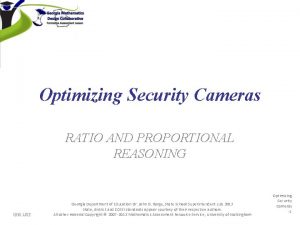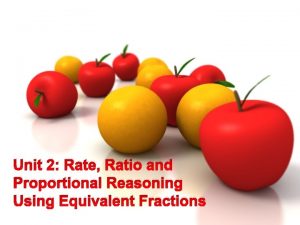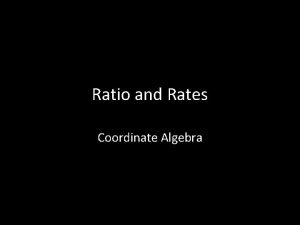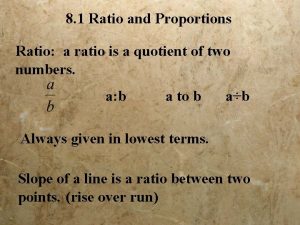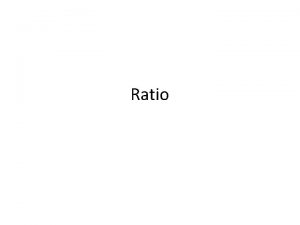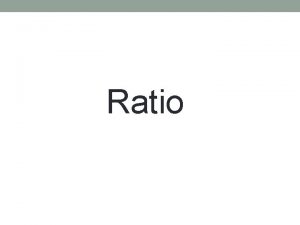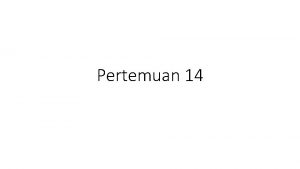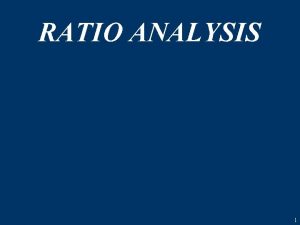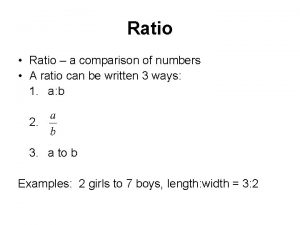The Rigors of Ratio and Proportional Reasoning in



















- Slides: 19

The Rigors of Ratio and Proportional Reasoning in the Common Core State Standards ADAPTED FROM A WORKSHOP PREPARED FOR THE RHODE ISLAND DEPARTMENT OF EDUCATION BY KRISTINA SPARFVEN

Agenda �Examine the progression of ratio and proportion in the middle grades. �Highlight the connection between content and relevant Standards for Mathematical Practice. �Explore instructional strategies and models that promote understanding of ratio and proportion. �Work on activities that support ratio and proportional reasoning. �Wrap-up/Questions.

How are the math practices incorporated? �Reason Abstractly and Quantitatively (MP 2) Contextualize and Decontextualize �Construct Viable Arguments and Critique the Reasoning of Others (MP 3) Use multiple models as solution paths, understand multiple models �Model with Mathematics (MP 4) Represent situations mathematically �Attend to Precision (MP 6) Precise use of language when describing and interpreting �Looking for structure (MP 7) Recognizing rates, ratios, and proportional relationships

What is a ratio? �An essential understanding for today, is to internalize the concept of ratio. �Turn and talk to your neighbor about what you think of when your hear the word ratio.

What is a ratio? �

Tape Diagrams �Visual model �Measuring in the same units. This tape diagram shows the ratio of two juices in a fruit punch. What different ratios could be expressed by the tape diagram?

Tape Diagrams

Double Number Line � Measuring with different units. � Each ratio pair is the same distance from 0 on their respective lines. � Double number lines have a variety of uses: to find unit rates other equivalent ratios missing value in a proportion including missing values in percent problems

Using a Double Number Line to Find a Unit Rate

Unit Rate in the Real World �Unit rates are often expressed as a comparisons with no reference to the number one o o 65 miles per hour $2. 49 per pound �In grade 7 students are able to convert a rational number to a decimal using long division (7. NS. 2 d) �When students create ratios to find a unit rate expressed as a decimal, it is important that they fully understand the comparison they are making

Using a Double Number Line for Percent Problems

Finding a Missing Value in a Proportion �What method would you use to solve for the value of x? 3 ___ 21 X ___ = 35 �Reflect on how you might teach your students to solve for the value of x.

The “Why” of Cross Multiplication the Cross Product Property

Ratio structure in TABLES �Additive structure. �Multiplicative structure

Grade 7 PARCC Item

Ratio structure in GRAPHS �Additive structure �Multiplicative structure

Correspondence between Tables and Graphs �Additive �Multiplicative

Ratio structure in EQUATIONS �Constant of proportionality (unit rate) �y=mx m is the unit rate (grade 6), constant of proportionality (grade 7), slope (grade 8)of a graph �An equation can be used to generate inputs and outputs in a table (beginning function work)

Session Summary �Today we examined… The nature of ratio and proportional reasoning and its progression through the middle grades. Strategies for solving ratio, rate, and proportional reasoning problems. Unit rate and its evolution through the grades to constant of proportionality and slope. Ratio structure in tables, graphs, and equations. Integration of the mathematical practices with the content of ratio and proportional reasoning.
 Non proportional table
Non proportional table Inversely proportional
Inversely proportional Proportional or nonproportional
Proportional or nonproportional Proportional vs nonproportional
Proportional vs nonproportional Proportional vs non proportional graphs worksheet
Proportional vs non proportional graphs worksheet Boyle's law direct or indirect
Boyle's law direct or indirect Course 2 chapter 1 ratios and proportional reasoning
Course 2 chapter 1 ratios and proportional reasoning Practice proportional reasoning with scale drawings
Practice proportional reasoning with scale drawings Proportional reasoning calculator
Proportional reasoning calculator Proportional reasoning calculator
Proportional reasoning calculator Deductive argument examples
Deductive argument examples Argument by analogy
Argument by analogy Deductive reasoning moves from
Deductive reasoning moves from Deductive reasonign
Deductive reasonign Inductive v deductive reasoning
Inductive v deductive reasoning Inductive vs deductive reasoning
Inductive vs deductive reasoning Inductive reasoning is reasoning based on patterns
Inductive reasoning is reasoning based on patterns Acid test ratio and quick ratio
Acid test ratio and quick ratio Genotype and phenotype ratio
Genotype and phenotype ratio Current ratio and quick ratio
Current ratio and quick ratio
